Charter of Patient Rights
• Health services should be worthy of human dignity and respecting the values, cultural and religious beliefs of the patient .
• Health services, while being fair and honest, should be fair, fast and free of any discrimination as much as possible.
• Health services should be based on current knowledge and patient's interests and should be performed using appropriate facilities and conditions.
• Health services should be provided according to the condition and characteristics of the patient (child, elderly, disabled, etc.)
• Health services should be provided taking into account variables such as language, age and gender of service .
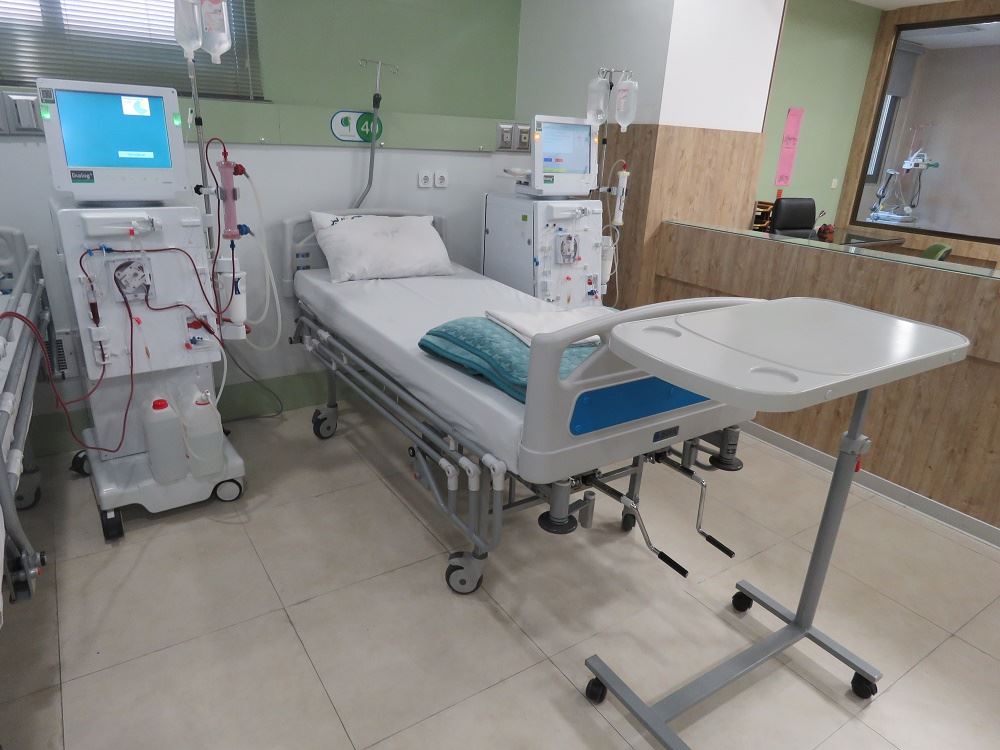
• Treatment costs and how to use basic and supplementary insurance services should be provided to the patient .
• The name, responsibility and professional rank of the relevant medical team members and how to access them should be informed to the patient.
• Diagnostic and treatment methods, the strengths and weaknesses of each method and its possible complications should be explained to the patient
• Necessary training should be provided regarding the disease and the duties of the patient and her family.
• The patient can access all the information recorded in her clinical file and receive its image.
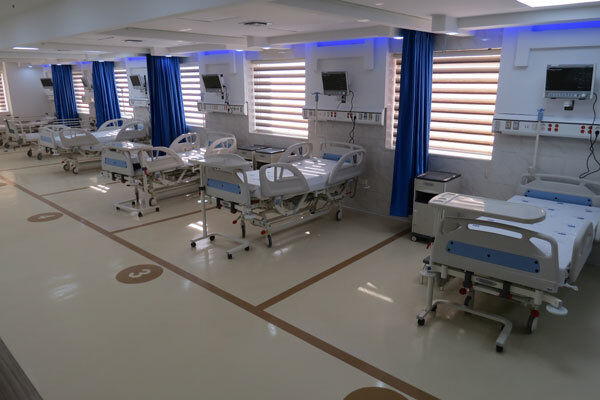
• The patient can choose the doctor and the hospital providing the treatment services within the framework of the criteria
• If possible, the patient can use a second doctor as a consultant.
• The choice and decision of the patient should be free and informed, based on receiving sufficient and comprehensive information.
• If there is no emergency, the patient can decide to accept or reject the proposed treatment method.
• If there is no danger, the patient should be given the appropriate time to make the necessary decisions

• Compliance with the principle of confidentiality regarding all information related to the patient is mandatory.
• As much as possible, the necessary facilities to respect the patient's privacy should be provided to her.
• Only the treatment group and authorized persons on behalf of the patient can access the patient's information.
• The patient has the right to have a trusted person with her during the diagnostic process, including examinations.
• Private affairs of disabled patients should be handled by homogeneous staff and trusted people of the patient.
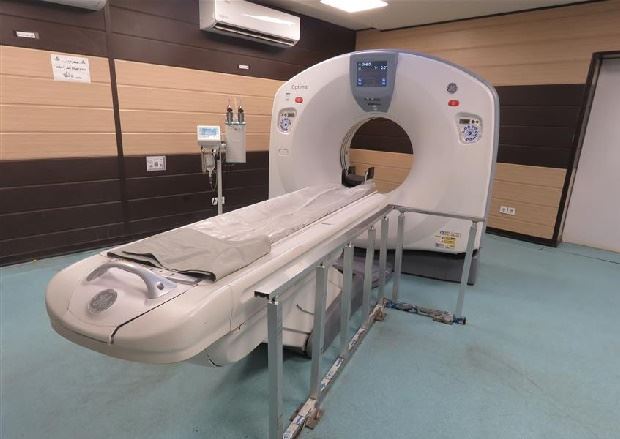
• If requested by the patient and her family, they should be introduced to the method of filing a complaint and the handling authorities.
• The investigating authorities will investigate the complaint as soon as possible and inform the patient about the results of the actions.
• In all stages of handling the complaint, the patient's treatment will continue without interruption.
• Any violation of rights or material and moral damage caused to the patient will be compensated according to the decision of the hearing authorities.
• If the patient is unable to make a decision for any reason, any decision regarding the exercise of the patient's rights will be the responsibility of the alternative legal decision maker.

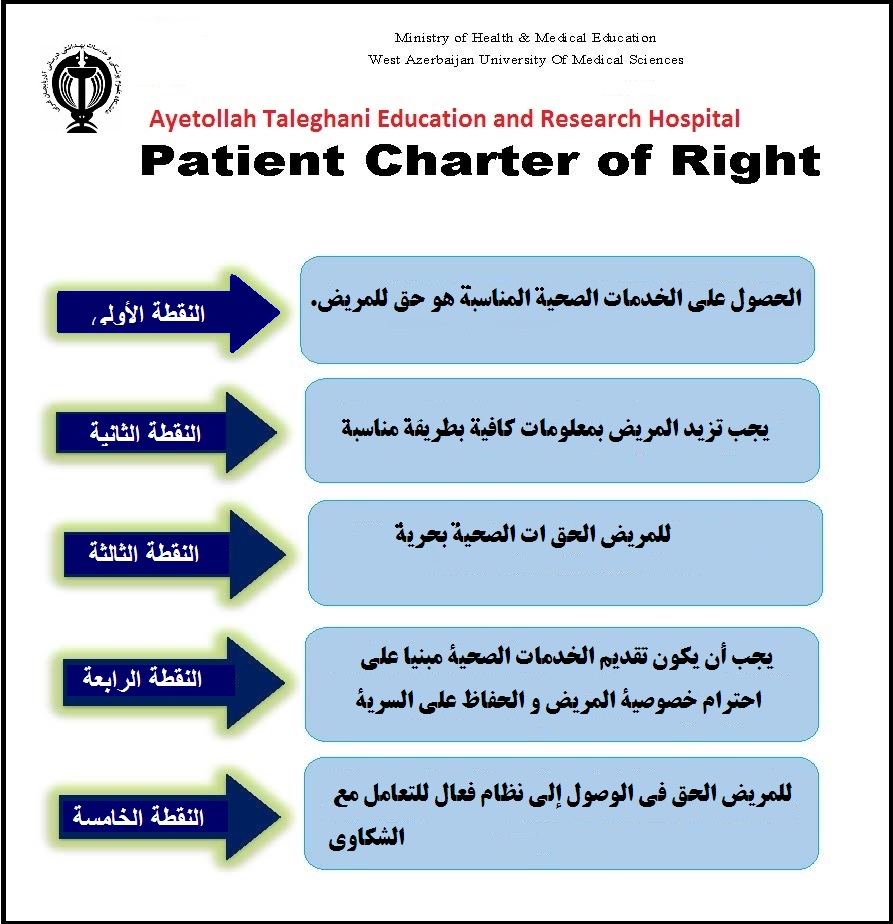
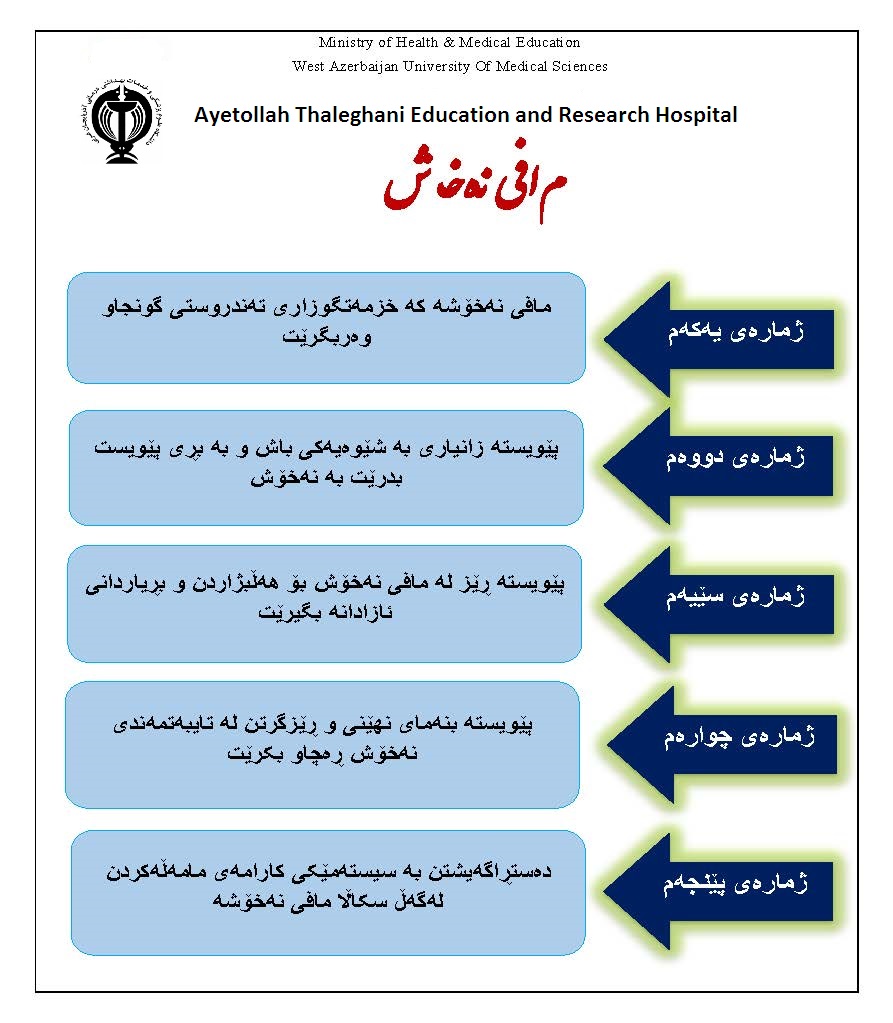
تغییر رنگ فونت:
رنگ اصلی:
رنگ متن:
تغییر رنگ پس زمینه:
تغییر فاصله بین کلمات:
تغییر فاصله بین خطوط:
انتخاب حالت کور رنگی
با انتخاب حالت کوررنگی تصاویر این وبسایت متناسب با حالت کوررنگی شما بهینه می شود

